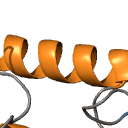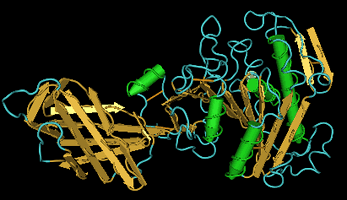Digestive Enzymes 101: Digestive Enzymes and their Importance
 Digestives enzymes play a vital role in the proper digestion and absorption of the things we eat and drink. They assist various parts of the digestive system in breaking down what we consume into different nutrients, fats, carbohydrates, and proteins. Glands that produce digestive enzymes can be found in the mouth, the stomach, in the pancreas, and in the small intestines.
Digestives enzymes play a vital role in the proper digestion and absorption of the things we eat and drink. They assist various parts of the digestive system in breaking down what we consume into different nutrients, fats, carbohydrates, and proteins. Glands that produce digestive enzymes can be found in the mouth, the stomach, in the pancreas, and in the small intestines.
One type of digestive enzyme is protease. It is produced by glands that are located in the stomach, as well as in the pancreas. The role that protease plays in the digestive process is that it helps to break down any proteins into peptides. Peptides can then be absorbed into the walls of the intestines for the body to use.
Another type of enzyme that is necessary for proper digestion is called nuclease. This digestive enzyme is produced by glands in the pancreas. What it does is simple to understand. It helps break up nucleic acids so that they can release sugars, along with nitrogen bases, which the body needs to maintain good digestive health.
Lipase is another digestive enzyme that is primarily produced by glands located in the pancreas. However, it is also produced from glands in the mouth and stomach. Lipase breaks down fats into fatty acids so that they can be properly digested or absorbed. Since fatty acids can be harder to break down, bile aids lipase in performing this task more effectively.

A computer-generated image of a type of pancreatic lipase
Amylase is yet another type of digestive enzyme produced in the body. It is secreted from glands in the mouth and the pancreas. The job of this enzyme is to break down consumed carbohydrates so that the body is then able to use them for energy. Most amylase is produced in the pancreas.
When a meal is consumed, the food is not automatically going to give the body the nourishment it needs. Everything we eat or drink must be broken down into smaller molecules so that it can be carried through the blood stream for our bodies to effectively use. Each part of the digestive system plays a role in doing this, including all four types of digestive enzymes. When there is a malfunction somewhere within the digestive system, medical problems can begin to occur.
Digestive problems and enzyme deficiencies can often be corrected by making dietary changes. Many people do not realize how important it is to eat healthy. People who eat healthy meals and snacks often experience fewer digestive problems than those who do not. However, there are occasions when dietary changes do not effectively correct the problem. When this is the case, the advice of a doctor may become necessary. While there are many over-the-counter medications available, some digestive conditions may need to be treated with prescription medication to help eliminate the problem.
Digestive enzymes play a vital role in the digestive system. Without them, the body cannot properly break down the food it consumes. Therefore, there are nutrients it will not get.
Sources:
http://en.wikipedia.org/wiki/File:2xfr_b_amylase.png
http://faculty.clintoncc.suny.edu/faculty/michael.gregory/files/bio%20102/bio%20102%20lectures/digestive%20system/digestive%20system.htm